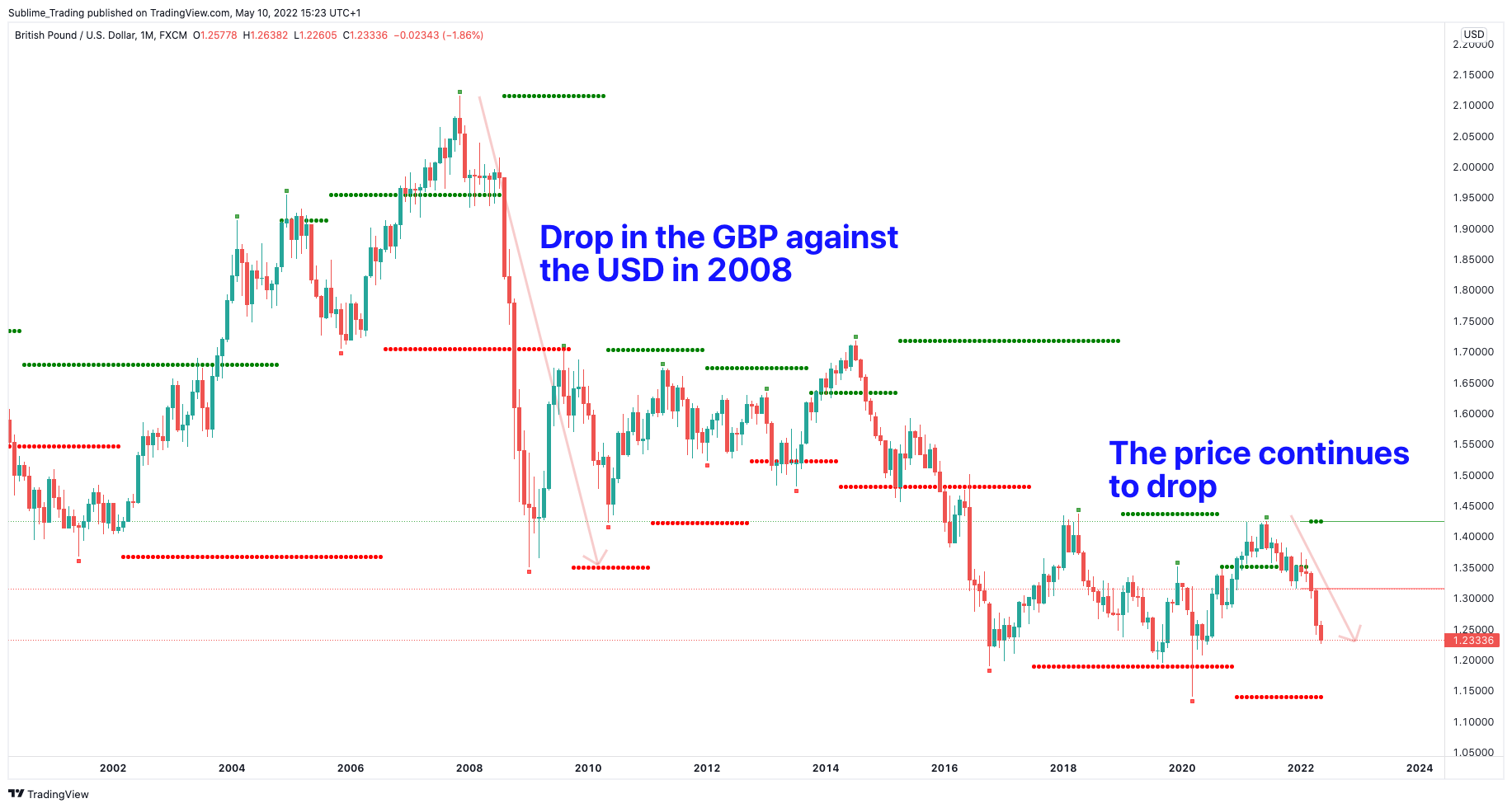Zinger Key Points
- During a recession, we would expect interest rates to fall compared to other countries.
- This would make the country in recession less attractive to investors to save money, causing a flow of money to countries offering better interest rates.
The Oxford Dictionary defines a recession as a period of temporary economic decline during which trade and industrial activity are reduced, generally identified by a fall in GDP in two successive quarters.
It is also defined as a period of declining economic performance across an entire economy that lasts several months.
It would then be considered a natural thought process to look for a fall in the value of the country's currency to confirm a recession.
An example was the U.K. in 2008, when the Great Recession caused a 36% depreciation in the British pound against the U.S. dollar.
During a recession, we would expect interest rates to fall compared to other countries. This would make the country in recession less attractive to investors to save money, causing a flow of money to countries offering better interest rates.
In short, they would potentially sell, say, British pounds and buy more dollars causing a fall in the pound.
In theory, therefore, we might expect a recession to cause a decline in the value of the affected currency.
So is the US entering a period of recession?
Below I have the monthly time frame of the GBPUSD.

Since June of last year, the dollar gained 15% on the pound and 72% since 2007. Based on the dollar gaining strength, it could be argued the U.S. is far from a recession.
Yet a currency on its own is not a clear cut indicator, as some countries are set up to prevent a decline during a recession. This depends on whether the country has a current account deficit or a surplus and the impact this has on trade.
Numerous models attempt to explain why and how the economy might fall from a sustained period of growth to a temporary decline, including:
- Employment figures
- Structural shift in industries
- Economic shock caused by pandemics
- Credit and financial risk
- Insufficient growth in money supply
- And even psychological factors that cause periods of boom and decline.
Over the years, my understanding of the world has only confirmed the necessity of sound investing and protecting oneself from global events and situations that are firmly out of our control.
Building a career, having a side hustle, earning and saving money and then learning to invest correctly using modern-day investment vehicles and tech for long-term growth are all within our means, and that is where our primary focus must always be.
© 2025 Benzinga.com. Benzinga does not provide investment advice. All rights reserved.
Trade confidently with insights and alerts from analyst ratings, free reports and breaking news that affects the stocks you care about.